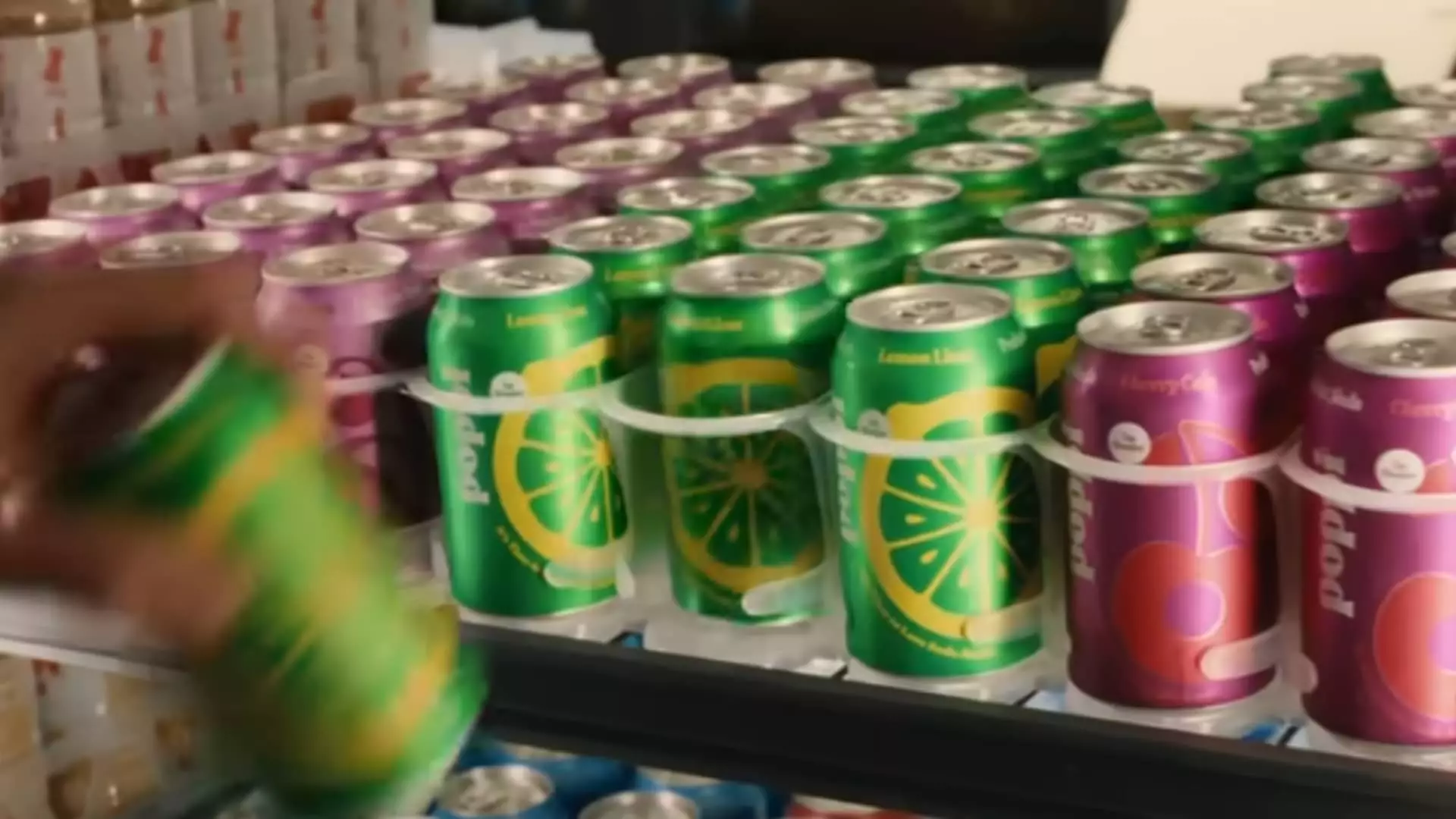The recent announcement of PepsiCo’s acquisition of the prebiotic soda brand Poppi for an eye-popping $1.95 billion signals a seismic shift in consumer preferences. This financial move doesn’t just reflect a transaction; it marks a blistering response to the declining sales of traditional sodas, which have long dominated American markets. Instead of succumbing to oblivion, the beverage industry is watching genre-defining entrants like Poppi and Olipop carve out a niche that appeals to health-conscious consumers, demonstrating that innovation can disrupt even the most entrenched giants. With Poppi’s sales surging past $100 million, the success story of this brand is a testament to changing tastes and an evolving understanding of what we consider health drinks.
PepsiCo’s Strategy: More Than Just a Purchase
PepsiCo isn’t merely fishing in murky waters; it’s signaling its readiness to adapt in a rapidly changing market landscape. This acquisition reflects a deliberate strategy—replacing plans for their own functional soda line, Soulboost, with the immediate capture of an already successful player in the prebiotic category. It’s a decision driven not just by market trends, but by an acute awareness of what modern consumers seek: ingredients that promote gut health without sacrificing flavor. The deal also incorporates $300 million in anticipated cash tax benefits, reducing the immediate financial impact of this sizable acquisition. The possible extra payments contingent upon Poppi’s performance cleverly align both companies’ interests, ensuring that success begets more resources to expand.
Challenges Amidst Growth
However, the rosy picture isn’t without its clouds. While Poppi enjoyed explosive growth, it has faced scrutiny regarding the health claims made on its labels. Recently, the brand dealt with a class-action lawsuit alleging that its drinks might not be as beneficial as advertised, which culminated in a settlement of $8.9 million. This highlights a critical gap in the burgeoning market for functional beverages, where health claims must withstand not only consumer enthusiasm but also legal scrutiny. Such controversies could dampen enthusiasm among potential buyers and investors, revealing that even in a sector poised for growth, challenges loom just as large as opportunities.
Industry Implications: A Move Toward Transparency?
As PepsiCo dives into the prebiotic arena, it sets the stage for a broader industry shift towards transparency and accountability. Brands may increasingly be called to support their health claims with robust scientific evidence, fostering a dialogue that empowers consumers. This aligns seamlessly with the progressive values held in center-left liberalism, where market-driven innovations can promote both profit and public health. The acquisition jolts all players in the beverage market to re-evaluate their portfolios—whether they maintain traditional drinks or pivot towards healthier alternatives, the need for authenticity, integrity, and responsibility is becoming more pressing.
Through this substantial investment, PepsiCo recognizes that sustainable growth will hinge not only on what they sell but on how they inform and educate the public about their products. As they embrace this new landscape, we may witness an evolutionary leap in the world of soft drinks, marked by a deeper commitment to healthier lifestyles and clearer communication of benefits and risks.

